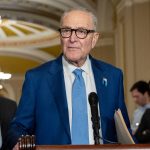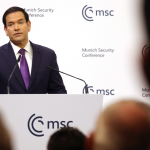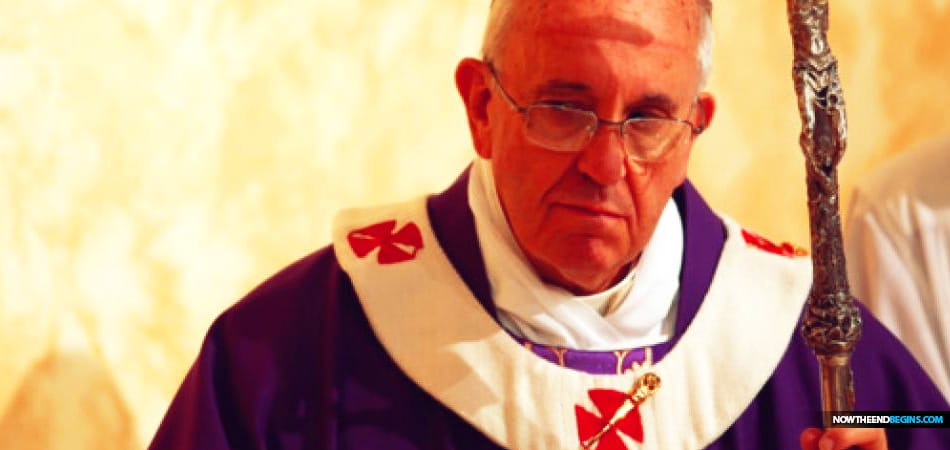Tax cuts for the wealthy constitute a “structure of sin,” Pope Francis said Wednesday in a passionate address calling for international wealth redistribution.
“Every year hundreds of billions of dollars, which should be paid in taxes to fund health care and education, accumulate in tax haven accounts,” the pontiff told participants in a Vatican seminar, “thus impeding the possibility of the dignified and sustained development of all social agents.”
“Today’s structures of sin include repeated tax cuts for the richest people, often justified in the name of investment and development,” Francis told the meeting organized by the Pontifical Academy for Social Sciences.
During his discourse, the pope repeated his conviction that poverty is on the rise worldwide and “the poor increase around us.”
With the passage of time and the advances of civilization the number of poor people increases rather than diminishing, Francis similarly asserted last June, and “the poor are always poorer, and today they are poorer than ever.”
As a Brookings Institution report noted in late 2018, however, the world is currently experiencing “the lowest prevalence of extreme poverty ever recorded in human history — less than 8 percent,” and that number falls with each passing year.
According to the widely used “international poverty line,” people are considered to be in “extreme poverty” if they live on less than $1.90 per day or its equivalent.
In the world today, less than 10 percent of the global population lives in extreme poverty, whereas just 30 years ago (1990), some 37 percent of the world lived in extreme poverty. Two centuries ago, nearly everyone in the world lived in extreme poverty.
While in the year 1800 almost 90 percent of the world’s population subsisted on less than $1 a day, that percentage had been constantly falling, dropping below 20 percent in the year 2000 and below 10 percent in the present day.
It is not only “extreme poverty” that is falling, however. The global poverty rate has been falling across every single poverty line, whether the bar is set at $1.90 a day or $10 a day.
In his address Wednesday, the pope lamented that the per capita annual income in the world this year will be $12,000 “according to official reports.”
According to data from the World Bank, however, annual per capita income worldwide has been increasing dramatically year by year and in 2018 was $17,948. Furthermore, the World Bank reveals, global per capita income has increased by over 200 percent since 1990 and is now more than three times higher than its 1990 level of $5,498.
This does not suggest that poverty is not a problem or that poverty reduction is not a worthy and important goal. It does mean, however, that global poverty is not increasing but is decreasing rapidly. In free market economies that favor wealth creation such as the United States, “extreme poverty” has virtually been eradicated.
For example, in 2005, 78.3 percent of households living in “poverty” (by U.S. standards) had air conditioning, whereas in 1970, 36.0 percent of all households had air conditioning.
“If extreme poverty exists in the midst of wealth (also extreme) it is because we have allowed the gap to widen to become the largest in history,” the pope said. “The world’s 50 richest people have $2.2 trillion worth of assets. These fifty people alone could fund the health care and education of every poor child in the world, whether through taxes, philanthropic initiatives, or both.”
It must be acknowledged, however, that no such “gap” exists between the wealthy and the poor, since the vast majority of people live somewhere in the middle. There is not a cluster of ridiculously rich people followed by an immense mass of very poor people. The majority of people are neither very rich nor very poor.
Story cited here.
























